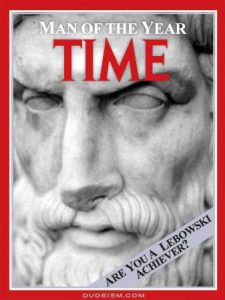I wish a Happy and Peaceful Eikas to all my Epicurean readers! We recently celebrated our first Eikas in Spanish on the anniversary of the death of Professor Jesús Guevara, a Venezuelan friend who was one of the first members of SoFE and who died in a bicycle accident in 2021. He would have been happy to know that we remembered him by celebrating our first Spanish-language Eikas with a virtual gathering that included people from Spain, France, the US, and Mexico. Other literary updates: I recently discovered the episode Thinking On Sunday: Epicurus and the Art of Happiness. The granular life documents the importance of the idea that things are made of particles.
Over the last couple of months, I published two essays:
Today, I will close my Yangist meleta by sharing a list of Yangist writings cross-referenced with Epicurean writings for students who wish to compare them. I have also updated our De rerum natura study guide and meleta with cross-references from Yangist sources, mainly from the seventh chapter of Liezi. Please subscribe, enjoy, comment, and share.
— * —
Epicureans’ and Yangists’ Parallel Sayings
The Belly as a Point of Reference
The Yangist saying “External possessions are replaceable, but the body is not”, reminds us of the distinction between natural and necessary desires versus those that are neither natural nor necessary. This distinction is mainly expressed in Taoism as a distinction between the internal and the external, and there (as in Epicurus) it takes the belly as point of reference for the stability of inner practice. (It also has a role in eastern medicinal and martial arts traditions). Since the belly is seen as the center of the body, it is associated with being centered in ourselves, with finding our center, and with stability and peace.
The entire chapter 12 of the Tao Te Ching sounds like it could have been meleta on the autarchy portion of the Letter to Menoeceus, since it criticizes over-stimulation and it closes with a reference to the belly as a standard for inner self-care for those who enjoy self-sufficient ataraxia (as opposed to the endless desires that are stirred by external things), and with a reference to choices and rejections that could have been penned by Epicurus himself. Some translations say “the sage is guided by what he feels and not by what he sees”, which is still thought-provoking.
Racing through the field and hunting make the mind wild. Searching for precious goods leads astray. Therefore, the sage attends to the belly, and not to what he sees. He rejects the latter and chooses the former. – Tao te Ching 12
The seat of good is the belly. – Metrodorus of Lampsacus
Against Seeking Fame and Appeasing Others
Reputation is living to appease the opinions of others and being overpowered by strangers. – Yang Chu
All these four sages, while alive, had not one day’s pleasure, and after their death a reputation lasting many years. Yet reputation cannot bring back reality. You praise them and they do not know it, and you honor them and they are not aware of it. There is now no distinction between them and a clod of earth. – Yang Zhu, Book 7 of Liezi, Chapter 13
You value proper conduct and righteousness in order to excel before others, and you do violence to your feelings and nature in striving for glory. That to us appears to be worse than death … If anybody knows how to regulate external things, the things do not of necessity become regulated, and his body has still to toil and labour. But if anybody knows how to regulate internals, the things go on all right, and the mind obtains peace and rest. – Yang Zhu, Book 7 of Liezi, Chapter 9
YANG CHU said: The memory of things of highest antiquity is faded. Who recollects them? … Every trace of intelligent and stupid men, of the beautiful and ugly, successful and unsuccesful, right and wrong, is effaced. And whether quickly or slowly is the only point of difference. If anybody cares for one hour’s blame or praise so much that, by torturing his spirit and body, he struggles for a name lasting some hundred years after his death, can the halo of glory revive his dried bones, or give it back the joy of living? – Yang Zhu, Book 7 of Liezi, Chapter 15
Also: Chapter II of Liezi
To speak frankly as I study nature I would prefer to speak in oracles that which is of advantage to all men even though it be understood by none, rather than to conform to popular opinion and thus gain the constant praise that comes from the many. – Vatican Saying 29
“I have never wished to cater to the crowd; for what I know they do not approve, and what they approve I do not know.” ― Epicurus
On Autarchy
YANG CHU said: There are four things which do not allow people to rest: Long life. Reputation. Rank. Riches. Those who have them fear ghosts, fear men, power, and punishment. They are always fugitives. Whether they are killed or live they regulate their lives by externals. Those who do not set their destiny at defiance do not desire a long life, and those who are not fond of honour do not desire reputation. Those who do not want power desire no rank. Those who are not avaricious have no desire for riches. Of this sort of men it may be truthfully said that they live in accordance with their nature. In the whole world they have no equal. They regulate their life by inward things. – Yang Chu’s Garden of Pleasure, Chapter 17
“I answer enjoy life and take one’s ease, for those who know how to enjoy life are not poor, and he that lives at ease requires no riches.” – Yang Chu’s Garden of Pleasure, Chapter 6
YANG CHU said: Men resemble heaven and earth in that they cherish five principles. Of all creatures, man is the most skilful. His nails and teeth do not suffice to procure him maintenance and shelter. His skin and sinews do not suffice to defend him; though running he cannot attain profit nor escape harm, and he has neither hair nor feathers to protect him from the cold and heat. He is thus compelled to use things to nourish his nature, to rely on his intelligence, and not to put his confidence in brute force; therefore intelligence is appreciated because it preserves us and brute force despised because it encroaches upon things. – Yang Zhu, Book 7 of Liezi, Chapter 16
YANG CHU said: How can a body possessing the four things, a comfortable house, fine clothes, good food, and pretty women, still long for anything else? He who does so has an insatiable nature, and insatiableness is a worm that eats body and mind. – Yang Zhu, Book 7 of Liezi, Chapter 19
“If you wish to make Pythocles rich, do not add to his store of money, but subtract from his desires.” –
Don’t ruin the things you have by wanting what you don’t have, but realize that they too are things you once did wish for. – Vatican Saying 35
On Death
“So relish your present life, why worry about the afterlife? – Yang Chu (page 116 of “The Many Lives of Yang Zhu”)
Death is nothing to us, for when we are death is not and when death is we are not; so it is nothing to the living and it is nothing to the dead
On Virtues Versus Pleasure
In page 118 of The Many Lives of Yang Zhu, Erica Brindley argues that wei wo (the doctrine of living for oneself) may have originally had a socially conscious interpretation, or that at least the two attitudes are not mutually contradictory and can be practiced at one and the same time, just as our Kathegemones (Epicurean Guides) insist that certain things must be practiced at one and the same time (in VS 41, or PD 5) as a way to reject the imaginary choice between selfishness and altruism. In truth, we need some measure of both. The following quote demonstrates that at least some Yangists had pro-social concerns.
It is not that Bo Yi had no desires; it’s that he cherished purity so much that he quit his office and let himself starve to death. It is not that Zhan Li had no emotions; it’s that he cherished moral probity so much that he quit his office, was widowed, and neglected his ancestral clan. These cases demonstrate the error of mistaking purity and moral probity as the good. – Yang Zhu (from the Liezi, cited in page 117 of “The Many Lives of Yang Chu); Chapter 5 of Book 7 of Liezi
In any case, the fact that even virtuous actions often have no advantage because, in the cases mentioned above, men show too much arrogance or fall back without reason into superstitious fears, and because in other actions in life they make many mistakes of every kind, so that no one really exhibits virtue. We, in turn, committed to follow pleasure, will witness in our favor that our affairs are carried out with more ease in the circumstances within which hitherto we had exhibited pain. – Polystratus (Third Scholarch of the Epicurean Garden), in “Irrational Contempt”
People who graft on charity, force themselves to display this virtue in order to gain reputation and to enjoy the applause of the world for that which is of no account. Of such were Tsêng and Shih. People who refine in argument do but pile up tiles or knot ropes in their maunderings over the hard and white, the like and the unlike, wearing themselves out over mere useless terms. Of such were Yang and Mih. Therefore every addition to or deviation from nature belongs not to the ultimate perfection of all. – Yang Zhu, in the Chuang Tzŭ, Chapter 8
On Politics
The content of Yang Zhu’s argument mainly involved moral matters and completely lacked elements of cosmology and political affairs, which constituted the most fundamental parts of Laozi’s theory. – Matsumoto Bunsaburo
I rejoice with you, for you are the kind of person I would praise if you were to grow old as you are, and who knows the difference between seeking wisdom for yourself and for the sake of Greece. – Epicurus
Better by far be subject, and at peace, than govern the world and hold a throne! – Lucretius, On the nature of things, Liber Qvintvs, 1129-1130 (continues to 1150)
On Fearing Death
What then is the object of human life? What makes it pleasant? Comfort and elegance, music and beauty. Yet one cannot always gratify the desire for comfort and elegance nor incessantly enjoy beauty and music. Besides, being warned and exhorted by punishments and rewards, urged forward and repelled by fame and laws, men are constantly rendered anxious. Striving for one vain hour of glory and providing for the splendour which is to survive their death, they go their own solitary ways, analyzing what they hear with their ears and see with their eyes, and carefully considering what is good for body and mind; so they lose the happiest moments of the present, and cannot really give way to these feelings for one hour. How do they really differ from chained criminals? The Ancients knew that all creatures enter but for a short while into life, and must suddenly depart in death. Therefore they gave way to their impulses and did not check their natural propensities. They denied themselves nothing that could give pleasure to their bodies; consequently, as they were not seeking fame. but were following their own nature, they went smoothly on, never at variance with their inclinations. They did not seek for posthumous fame. They neither did anything criminal, and of glory and fame, rank and position, as well as of the span of their life they took no heed. – Yang Zhu, Book 7 of Liezi, Chapter 3
And greed, again, and the blind lust of honours
Which force poor wretches past the bounds of law,
And, oft allies and ministers of crime,
To push through nights and days with hugest toil
To rise untrammelled to the peaks of power-
These wounds of life in no mean part are kept
Festering and open by this fright of death.Lucretius, On the Nature of Things, Liber Tertivs
When it comes to death, we all live in a city without walls. – Metrodorus, co-founder of the Epicurean lineage
Chapter 4 of Liezi, Book 7, interestingly characterizes life as difference and death as equality.
Against Lavish Burials
So we may give the feverish rest, satiety to the hungry, warmth to the cold, and assistance to the miserable; but for the dead, when we have rightly bewailed them, to what use is it to place pearls and jewels in their mouths, or to dress them in state robes, or offer animals in sacrifice, or to expose effigies of paper? – Yang Zhu, Book 7 of Liezi, Chapter 7
Among lawgivers, too, those who made dispositions naturally and well can be seen actually to have prevented excessive expenditure at funerals on the grounds that the living were being deprived of services: many give orders to do away with their property precisely because they begrudge this. – Philodemus, On Death 31.5
On Pleasures
Allow the ear to hear what it likes, the eye to see what it likes, the nose to smell what it likes, the mouth to say what it likes, the body to enjoy the comforts it likes to have, and the mind to do what it likes. Now what the ear likes to hear is music, and the prohibition of it is what I call obstruction to the ear. What the eye likes to look at is beauty; and its not being permitted to regard this beauty I call obstruction of sight. What the nose likes to smell is perfume; and its not being permitted to smell I call obstruction to scent. What the mouth likes to talk about is right and wrong; and if it is not permitted to speak I call it obstruction of the understanding. The comforts the body enjoys to have are rich food and fine clothing; and if it is not permitted, then I call that obstruction of the senses of the body. What the mind likes is to be at peace; and its not being permitted rest I call obstruction of the mind’s nature. All these obstructions are a source of the most painful vexation. Morbidly to cultivate this cause of vexation, unable to get rid of it, and so have a long but very sad life of a hundred, a thousand, or ten thousand years, is not what I call cherishing life. But to check this source of obstruction and with calm enjoyment to await death for a day, a month, or a year or ten years, is what I understand by enjoying life. – Yang Zhu, Book 7 of Liezi, Chapter 8
I have called you to constant pleasures. – Epicurus
Each one says: In the world there is nothing better than these our comforts and delights. – Yang Zhu, Book 7 of Liezi, Chapter 18, on the relativity of all pleasures
Against Seeking Immortality
All things were the same as they are now. – Yang Zhu, Book 7 of Liezi, Chapter 11
For all I may devise or find to pleasure thee is nothing: all things are the same forever. – Lucretius, On the Nature of Things, Liber Tertivs
Further Reading:
Contemplations on Tao – SoFE
Yang Chu’s Garden of Pleasure (Book 7 of Lieh Tzu), translated by Anton Forke
Yang Chu’s Garden of Pleasure, read by Chris Masterson | Full Audiobook



